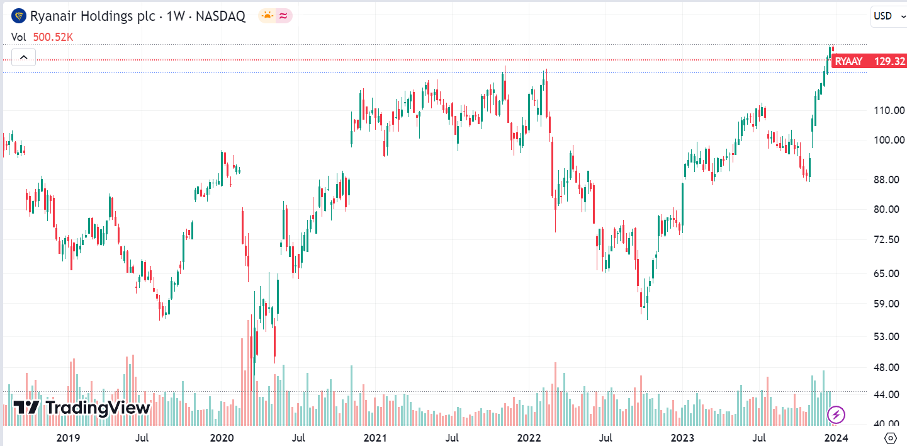Booking has stopped selling Ryanair tickets
According to reports, Ryanair has announced that several online travel agencies, including Booking.com, Kiwi and Kayak, stopped selling Ryanair flights in early December. This is due to legal and regulatory pressure. However, Google Flights is still offering Ryanair flights. As a marketer and investor who is always looking for opportunities, I have taken notice of this report and plan to apply it to my other deals.
My business plan tells me that this situation may be unfavourable for Ryanair in the short term, but in the long term, it may turn out to be a positive turn. As the company's stock has been rising sharply recently, in the short-term negative news may cause a correction and for me, this will create an opportunity to buy at a discount. Ryanair said it expects empty seats per flight to increase by 1% to 2% in December and January but does not expect this to have a significant impact on full-year traffic volumes or after-tax profit estimates.
Trading plan
For me, as a trader, this increase as I mentioned creates an opportunity. The fall in Ryanair's share price in response to this news could be temporary, which means now could be an ideal time to buy. [1]

Performance of Ryanair´s stock over 5 years. Source: tradingview.com*
Investing in airlines always carries some risk, especially at a time when the industry is still recovering from the COVID-19 pandemic. However, the courage to invest where others hesitate can bear fruit. Ryanair, with its historic ability to effectively address challenges and adapt to changing market conditions, represents a potentially strong investment.
Conclusion
So, I will spend today further exploring and analysing Ryanair's financial health, its market position, and the overall impact of this situation on its long-term performance. If my analysis proves positive, I may decide to take this opportunity to diversify my portfolio in this sector.
* Past performance is no guarantee of future results.
[1] Forward-looking statements are based on assumptions and current expectations, which may be inaccurate, or based on the current economic environment which is subject to change. Such statements are not guaranteeing of future performance. They involve risks and other uncertainties which are difficult to predict. Results could differ materially from those expressed or implied in any forward-looking statements.








